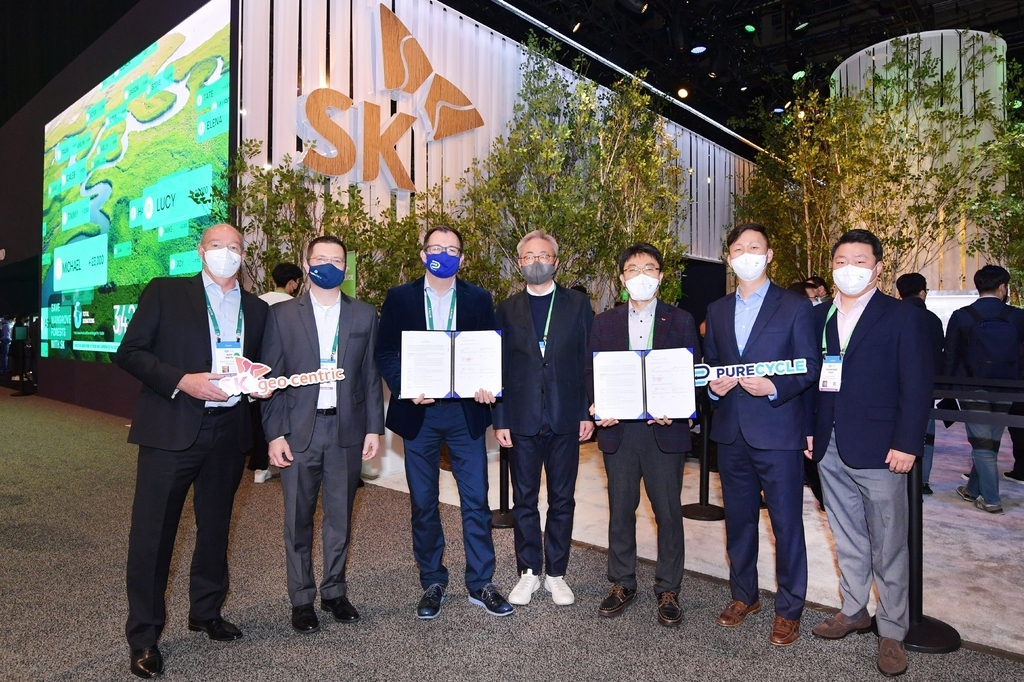 |
SK Innovation CEO Kim Jun (4th from L) and Purecycle Technologies CEO Mike Otworth (3rd from L) pose for photo with their company officials after signing an agreement on the construction of a plastic recycling plant in South Korea's southern city of Ulsan, on the sidelines of the Consumer Electronics Show in Los Angeles last week, in this photo provided by SK on Monday. (SK) |
SK Geocentric Co., a chemical materials unit of South Korean conglomerate SK Group, said Monday it will build a plastic waste recycling factory in South Korea jointly with a U.S. startup as part of efforts to advance its green business.
SK Geocentric said it signed an initial terms agreement with Purecycle Technologies Inc., a Florida-based plastic recycling company, to construct a polypropylene recycling factory in the industrial city of Ulsan, about 400 kilometers southeast of Seoul.
The signing took place on the sidelines of the Consumer Electronics Show in Los Angeles last week, attended by Purecycle Technologies CEO Mike Otworth and Kim Jun, CEO of SK Innovation Co., Geocentric's parent firm.
Under the deal, the construction will break ground this year and is aiming for completion by 2024. It will have an annual capacity to process about 60,000 tons of recycled polypropylene using Purecycle's technologies, and SK Geocentric will hold exclusive domestic sales rights to the materials.
Purecycle specializes in recycling polypropylene waste into ultra-pure polypropylene resin by removing contaminants, which can be re-used in various consumer goods, automotive and construction materials.
In August last year, the two companies agreed to set up a joint venture to build a plastic waste recycling plant in South Korea. SK Geocentric has also been working with other American and Canadian plastic recycling companies to boost related production in its Ulsan complex.
SK Geocentric, formerly SK Global Chemical, has said it plans to invest 5 trillion won ($4.16 billion) by 2025 to transform its business portfolio from petrochemicals to green products, aiming to expand the plastic waste recycling capacity to an annual 900,000 tons. (Yonhap)







![[Robert Fouser] Accepting migrants in South Korea](http://res.heraldm.com/phpwas/restmb_idxmake.php?idx=644&simg=/content/image/2024/10/31/20241031050896_0.jpg)
